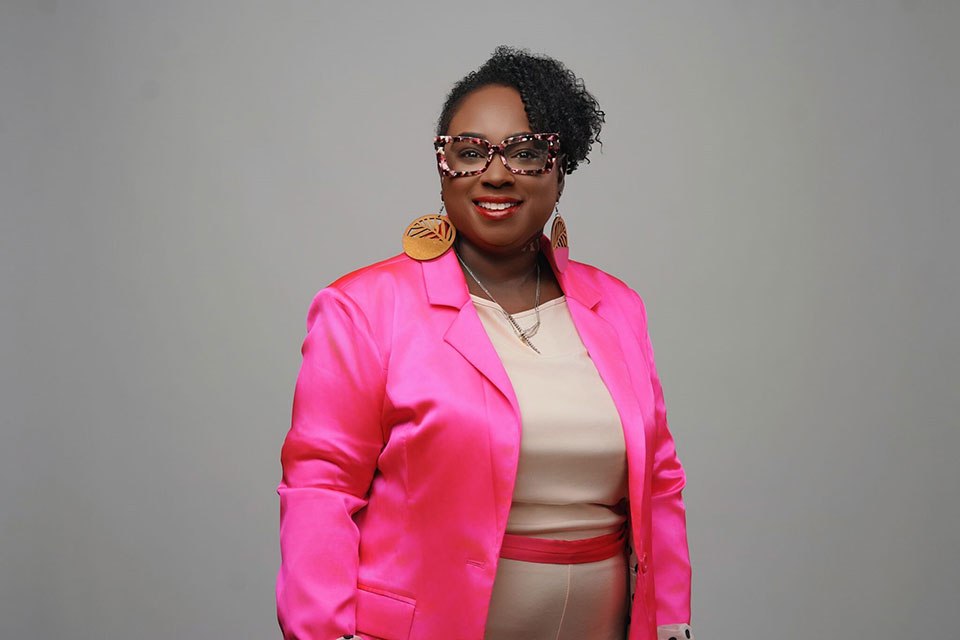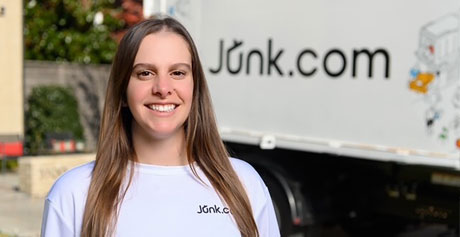Meet Certified Consultant, Bestselling Author, and President/CEO of Supporting World Hope, Sabrina Walker Hernandez.

Q: You have many incredible layers of being an entrepreneur, mother, wife and distinguished leader in your community. All of which come with their own set of unique challenges and scenarios that you’ve managed to navigate so well, but there is always the unexpected in life. As a cancer survivor who started your business from a hospital bed, what lessons did that experience teach you about resilience and leadership?
SW: Facing cancer taught me the true meaning of resilience and the importance of building inner strength and adaptability in times of adversity. It reinforced the idea that leadership is not about maintaining a perfect image but showing up authentically and persevering, even when the journey is unpredictable. This experience helped me build a culture of empathy and flexibility within my business, recognizing that everyone on my team has unique challenges they may be navigating.
Q: Your professional journey began in the nonprofit sector, and since then you have expanded your focus to include empowering corporations. How do you apply the principles of nonprofit leadership to corporate settings?
SW: Nonprofit leadership taught me the value of mission-driven work, collaboration and maximizing resources to create impact. In corporate settings, I apply these principles by encouraging a focus on purpose alongside profit and fostering cross-functional teams that collaborate with a sense of shared mission. This approach can drive companies toward sustainable success and community relevance.
Q: You have recently returned from several speaking engagements and keynote addresses where you focus on building unstoppable teams and mastering strategic leadership, what do you believe are the key qualities of effective leadership in the corporate world, especially when it comes to community engagement?
SW: Effective leaders are those who balance strategic vision with emotional intelligence and inclusivity. Building relationships and listening to diverse perspectives are vital, as these qualities help companies engage meaningfully with the community. Leaders should prioritize transparency and responsiveness, recognizing that community engagement requires commitment and adaptability.
Q: Can you share how your background in community service informs your approach to building sustainable business models?
SW: Community service has taught me the importance of centering impact and accountability, which directly translates to building sustainable businesses. Involving stakeholders and focusing on long-term, mutually beneficial outcomes—not just quick wins—helps create models that are resilient and adaptable to change.
Q: Your philosophy, "Nonprofit is a tax designation, not a business model," suggests a unique perspective. How can corporate leaders learn from this view to enhance their own practices?
SW: Nonprofits should operate with the same strategic intent, operational efficiency and entrepreneurial mindset as for-profit businesses. 501c3 nonprofit status simply describes how an organization is classified for tax purposes, but it does not define how it should function in practice. Nonprofits should adopt sustainable practices, focus on measurable outcomes and embrace innovative approaches to ensure long-term impact and financial resilience. This includes a mindset that encourages nonprofits to pursue growth, invest in leadership development and build strong, resourceful teams.
Q: What role do you think corporations should play in addressing local community needs and fostering social responsibility?
SW: Corporations play a vital role in addressing local community needs and fostering social responsibility. Beyond financial support, they can deepen their impact by actively engaging in community-driven initiatives and investing in the professional development of those who represent them in nonprofit spaces. By providing board members to serve on nonprofit boards and supporting their involvement, corporations contribute experienced leadership to these organizations. When corporations offer paid time for board members to attend meetings or professional development opportunities, they send a strong message that they value community involvement and see it as integral to their business ethos. This approach not only strengthens the nonprofit sector by bringing in skilled and motivated leaders, but it also enhances a corporation’s reputation as a responsible community partner. Such partnerships align corporate values with community goals, fostering shared impact that benefits both the local community and the corporation’s long-term objectives.
Q: In your experience, how can businesses effectively collaborate with nonprofits to create impactful community programs?
SW: To create impactful collaborations, businesses need to approach nonprofits as equal partners and work toward shared goals. Clear communication, trust and mutual respect are essential, as well as committing resources and aligning corporate strengths with community needs to amplify the impact.
Q: Can you provide an example of a corporate initiative you have led that successfully integrated community leadership and business strategy?
SW: I led an initiative where we collaborated with a local nonprofit to address food insecurity. By aligning our business resources with the nonprofit’s reach, we created a program that provided healthy meals to the community. This initiative not only enhanced our brand’s commitment to social responsibility but also strengthened local partnerships.
Q: What advice do you share with corporate leaders looking to enhance their community involvement and foster a culture of giving within their organizations?
SW: Start with a commitment to listen and learn about community needs and encourage employees at all levels to engage. A culture of giving is nurtured through leading by example, recognizing and celebrating community contributions and integrating giving into the core business strategy.
Q: How do you measure the impact of corporate community initiatives, and what metrics do you find most useful?
SW: Metrics like community satisfaction, employee engagement and positive brand sentiment are valuable. Additionally, tracking the direct impact on community beneficiaries, whether in terms of resources provided or programs implemented, offers insight into the initiative's success and sustainability.
Q: As a bestselling author, what key message do you hope to convey about leadership and community engagement through your writing?
SW: My core message is that authentic leadership is about connection, purpose and a commitment to lasting positive impact. I hope to inspire readers to lead with empathy, prioritize collaboration and view community engagement as a strategic and moral imperative.
Q: What is one word of advice you can offer to young women who want to reach your level of success?
SW: Authenticity. Be yourself and stay true to your values. In my journey, authenticity has been a powerful driver—not only in building relationships and partnerships but also in sustaining a meaningful career that I am passionate about.
Q: Can you tell our audience one of your most memorable moments of your career?
SW: Raising $12 million to build a state-of-the-art facility in one of the poorest counties in the U.S. was unforgettable. Many thought it was impossible, but I firmly believed that by cultivating relationships and rallying community support, we could make it happen. This experience taught me that when we unite around a shared vision, even the most challenging goals are within reach.
Q: At the start of your career, what do you wish you had known?
SW: I wish I had known the value of nurturing networks earlier. Building strong, authentic relationships has been essential to every success that I have achieved. Relationships are not just connections; they are currency that can help propel you forward in ways that skills or knowledge alone might not.
Q: What advice would you give to young women who want to pursue their dream and start a business?
SW: Start before you feel ready. I started my business from a hospital bed during one of the most challenging times in my life. If you believe in your vision, you will find strength you did not know you had. Know that challenges will come, but resilience will see you through.
Q: What's your advice for women in male-dominated fields?
SW: Own your voice and bring your unique perspective. Do not feel like you need to blend in or minimize your talents to fit. Your distinct approach and insights are what make you an asset. Find allies, focus on your goals and remember that your contributions are needed.
Five Things About Sabrina Walker Hernandez
1. If you could share a meal with any 4 individuals, living or dead, who would they be?
Jesus, my grandma Mamie, Malcolm X and Oprah.
2. What's your favorite family tradition?
Getting a dollar a year for your birthday based on your age!
3. What’s your favorite quote or saying?
Well behaved women rarely make history.
4. Are you a morning person or a night owl?
Night owl.
5. Would you rather cook or order in?
Order in, I don’t cook.


